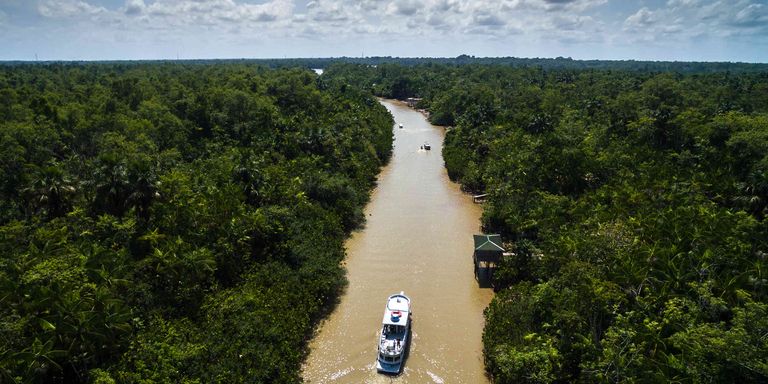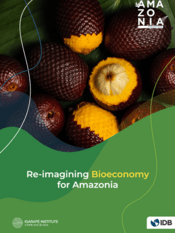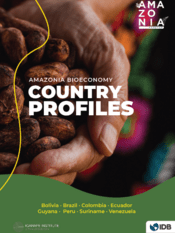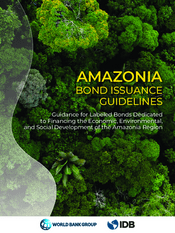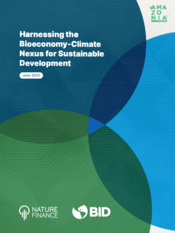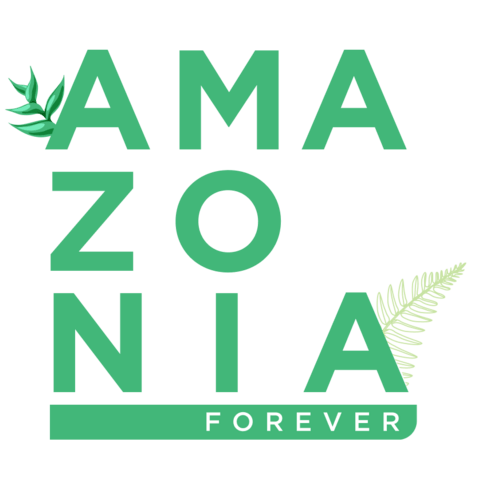 | Our Approach Amazonia Forever scales financing, strengthens project impact, shares evidence-based innovations, and leverages expertise to support policy development and enhance coordination. It fosters regional collaboration and invites all stakeholders to join forces. |
There is a growing scientific consensus that the Amazon region could reach an irreversible ecological “tipping point,” where it is losing its ability to recover from disturbances such as drought or wildfires. We have no time to waste. Some 17% of the Amazon has already been lost. This context underscores the need to increase collaboration and coordination among all parties to leverage synergies, increase the impact and scale of our projects and financing.
Watch the video to learn more about how Amazonia Forever and its partners are dealing with this challenge.

Strengthening environmental control and security, in the context of national governments. Amazonia Forever works with the Ministries of the Environment, environmental licensing agencies, and research and monitoring institutes to combat deforestation.
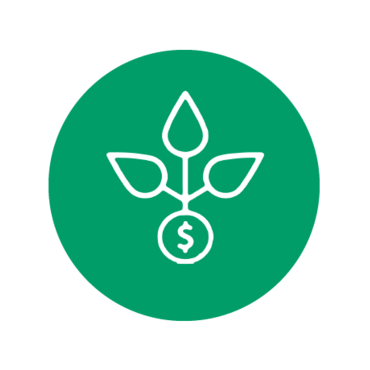
Promoting alternative and sustainable economic activities and transforming the use of forest resources to generate value-added products and services to foster a just economic transformation.

Provide adequate access to quality education, health care and employment; as well as promoting innovative solutions adapted to the local conditions of the population of the Amazon region.

Promoting resilient infrastructure and connectivity, and sustainable urbanization of the Amazon region. This includes adequate management and planning of urban growth, mitigation and adaptation to climate change, economic development, and social inclusion and equity.

Boosting and conserving sustainable and low carbon agricultural production systems as well as the transition to sustainable models of livestock management and forest protection.
In addition, Amazonia Forever will focus on promoting the inclusion of:
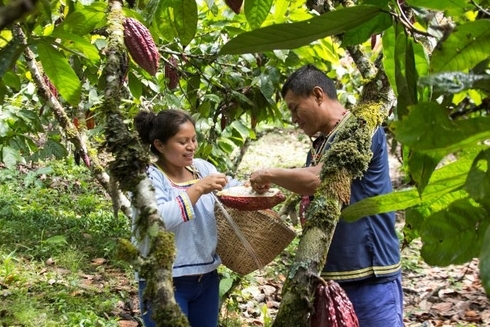
Their deep connection to the land, traditional knowledge, and cultural diversity are key to preserving biodiversity and combating climate change. By empowering these groups and ensuring their active participation, we can foster equitable growth, enhance environmental stewardship, and build stronger, more resilient communities across the region.
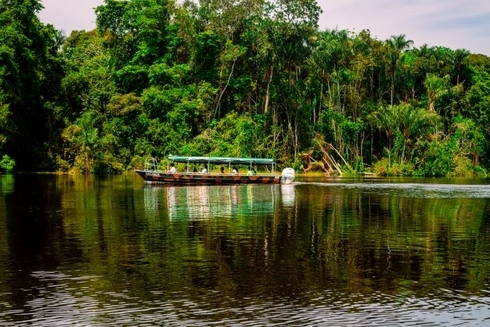
The region's rich biodiversity and vast forests act as global climate regulators and support ecosystems that millions of people rely on for their livelihoods. Protecting these natural resources ensures Amazonia can continue to provide critical environmental services, sustain local communities, and contribute to global efforts to mitigate and adapt to climate change.
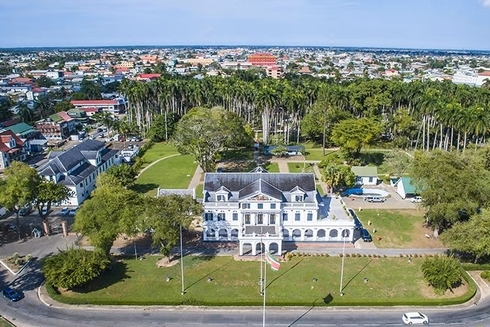
Effective institutions and robust legal frameworks ensure the enforcement of environmental protection, equitable resource management, and the rights of local communities. By building strong governance, we can combat illegal activities, promote sustainable practices, and create a stable environment for long-term development that benefits both people and the planet.
Discover the initiatives supported by Amazonia Forever, all working together to protect biodiversity, foster sustainability, and empower local communities across the Amazonia. These initiatives embody the collective effort to ensure a resilient, sustainable and inclusive future for the Amazon region.
The Amazonia Network of Ministers of Finance and Planning was established in 2023 by the IDB governors of the Amazonia countries. They committed to joining efforts for the sustainable development of the region and requested that the IDB create an initiative to improve lives in Amazonia and scale up financing and innovation.
The IDB is offering technical assistance to the Amazon Cooperation Treaty Organization (ACTO) in implementing the Declaration of Belém and providing technical assistance and will be launching a joint ACTO-IDB Amazonia Pavilion in COP 16.
More recently, the Amazonia Network of Ministers of Education was created and committed to accelerating and intensifying efforts to improve access, quality, and territorial relevance of education in urban and rural areas of the Amazonia Region focusing on inter-cultural education.
IDB is collaborating with the World Bank on innovative finance, developing instruments such as Amazonia Bonds, supporting issuers and engaging investors, standard setters, and regulators.
The Green Coalition, comprising 20 public development banks, was created and committed to mobilizing resources between $10 billion and $20 billion by 2030 to provide greater access to and scale investments in sustainable economic activities.
From the private side, the Amazonia Finance Network, formed by 54 financial institutions from 10 countries aims to support sustainable growth in the Amazonia region.
A pioneering initiative supported by the IDB and comprised of 39 cities from 8 Amazonian countries, which advances the development of a common and strategic agenda to promote sustainable urban development in the region.
For the first time and with the support of the IDB, the Forum of Ministers and High-Level Authorities of Housing and Urban Development of Latin America and the Caribbean has a Working Group of the eight Amazonian countries, focused on collaboratively developing a Strategic Framework for Sustainable Urban Development in the region.
With the Coordinator of the Indigenous Organizations of the Amazon Basin (COICA), the Amazonía para la Vida Fund catalyzes direct access to finance for indigenous peoples, afro-descendants, and traditional communities.
To incentivize research, the Bioamazonia Network of Biodiversity Research and Innovation Institutes is catalyzing direct access to finance for Indigenous peoples, afro-descendants, and traditional communities.
The Pan-Amazonia Network for Bioeconomy is a multisectorial alliance committed to promoting a locally-led sustainable bioeconomy across the Amazon. We focus on an economic pathway that prioritizes the conservation of standing forests, the rich biodiversity of the region and the well-being of its local population.
(Brazilian Amazonia States Consortium) This cooperation main objective is to support and build synergies that promote and reinforce the actions of the Brazilian Amazonia States Consortium, of Brazil in land regularization processes, bioeconomy, fiscal diagnoses and disseminating and sharing knowledge and experiences with strategic stakeholders.
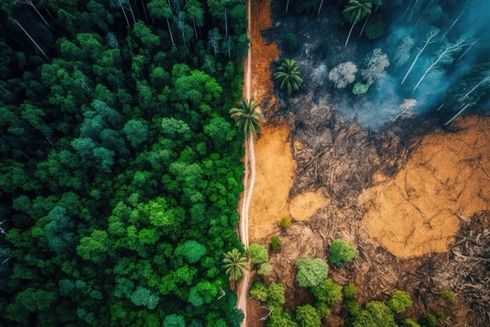
Global concerns are mounting over deforestation and degradation that threaten to push the Amazon rainforest past a “tipping point” and turn it into a savannah. Scientists worry that die-back may already be underway in parts of the Legal Amazon in Brazil. Aware of these threats, presidents from eight Amazon countries were gathered in Belem on August 8 and 9 for a summit to commit to redoubled efforts to end deforestation, protect biodiversity and accelerate “green” development.
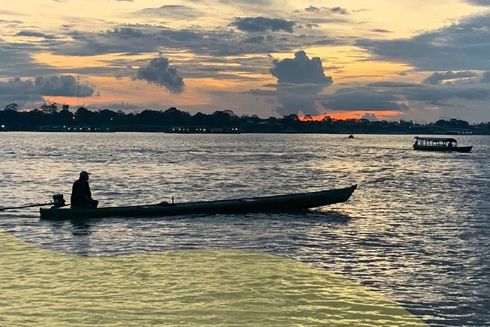
The Amazon Summit highlighted the powerful tool that is regional integration in the preservation of the Amazon region. The focus on union and collaboration between national and local governments, indigenous communities, and multilateral organizations like the Inter-American Development Bank (IDB), demonstrates a recognition of interdependence and the need for joint policies.
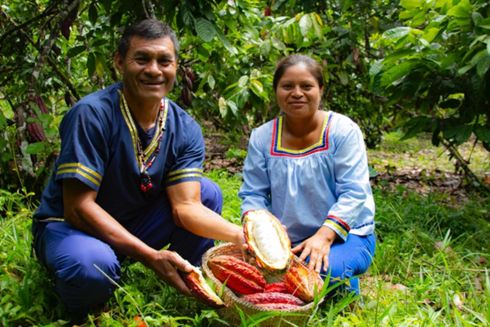
La Amazonía, la selva tropical más grande del planeta está amenazada por el avance de la frontera geográfica de la economía. Esta amenaza no implica únicamente una continua desaparición de su mega biodiversidad, sino también un impacto negativo a más de sus 50 millones de habitantes de nueve países —y que incluye a más de 511 pueblos indígenas— que dependen de los recursos naturales para su subsistencia y bienestar.
Discover the topics in which we work to improve lives in Latin America and the Caribbean.
Explore our offices across countries and the work they do to improve lives.
